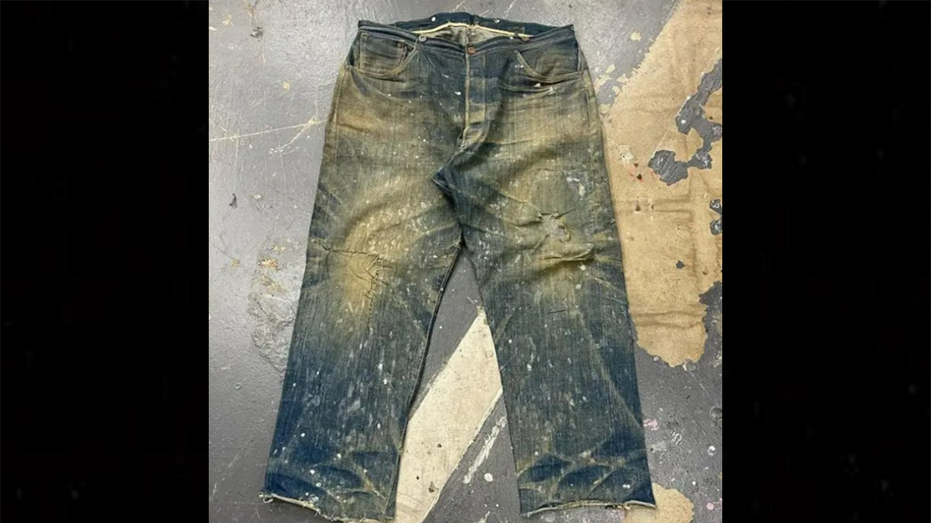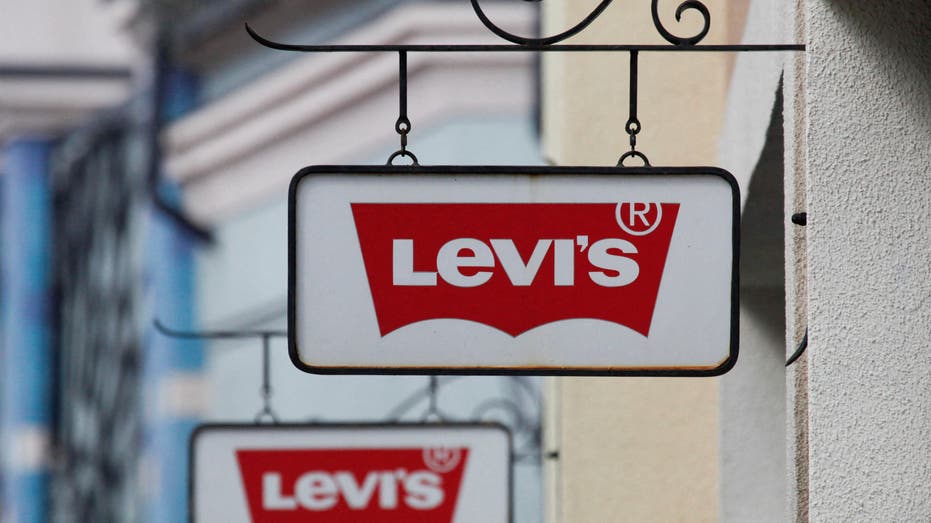Preworn Levi's jeans from 1880s found in mine sold for $87,000
The more than a century ago jeans feature frayed hems, fade marks, paint stains and several holes
A pair of used Levi's jeans from the 1880s that were discovered in an abandoned mine shaft sold at an auction in New Mexico for $87,000.
The jeans, which were found in the mine a few years ago, were purchased by two men — Kyle Hautner and Zip Stevenson — for more than $75,000 plus a 15% buyer’s premium. Stevenson is the owner of a vintage denim store in Los Angeles.
The two men placed their winning bid at the Durango Vintage Festivus.
The pants, which feature frayed hems, fade marks, paint stains and several holes, could still be worn despite their poor shape, Stevenson said. A couple of similar pairs of jeans exist, but remain in museums and are too delicate to wear.
WAWA SHUTTERING TWO PHILADELPHIA STORES AMID CITY'S RETAIL CRIME SURGE

A pair of used Levi's jeans discovered in an abandoned mine shaft were sold at an auction in New Mexico for $87,000. (Instagram/denimdoctors)
Stevenson said offers from a private buyer would be considered but that he would prefer the jeans to be purchased and displayed in a museum, such as the Smithsonian or the Metropolitan Museum of Art. The jeans are currently staying in a safety deposit box in Los Angeles. People can view the jeans by booking an appointment at Stevenson's store.
The jeans have a 38-inch waist and 32-inch length. They are an artifact of the nation's troubled history.
E-BIKES SOLD AT AMAZON, WALMART RECALLED DUE TO FIRE, EXPLOSION HAZARDS

The jeans, which were found in the mine a few years ago, were purchased by two men — Kyle Hautner and Zip Stevenson — for more than $75,000 plus a 15% buyer’s premium. (Reuters)
The pants feature the words, "The only kind made by White Labor" printed on the inside of a pocket, a reference to the time period's increased anti-Chinese rhetoric.
"An economic crisis in the United States in [the] 1870s led to high unemployment and fueled anti-Chinese sentiment and rampant discrimination," a Levi Strauss & Co. spokesperson said in a statement to NPR. "In 1882 when Congress passed the Chinese Exclusion Act, there was significant social pressure not to hire Chinese workers and LS&Co. adopted an anti-Chinese labor policy."

The pants, which feature frayed hems, fade marks, paint stains and several holes, could still be worn despite their old age. (Andrey Rudakov/Bloomberg via Getty Images / Getty Images)
The Chinese Exclusion Act prohibited Chinese laborers from entering the U.S. for a decade.
Levi’s had marketed its clothing as "made by white labor" because it believed this would increase sales by aligning with views held by Americans at the time.
CLICK HERE TO READ MORE ON FOX BUSINESS
The company spokesperson said there were times the company has "fallen short" in its commitment to "be a positive force for equality and racial justice." Levi’s reversed the labor policy in the 1890s.





















